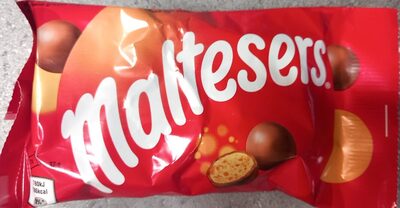
Barcode: 5000159555715
DOUBTFUL
📝 Reason: This product contains religiously questionable substances. Their acceptability varies among Islamic scholars based on potential derivation methods and sources.
🏷️ Category: Snacks, Sweet Snacks, Cocoa And Its Products, Confectioneries, Chocolate Candies
📄 Certificates: Green Dot, Fr:Tidy Man
Ingredients:
Details
Understanding the Halal Status of This Product
The Halal status of food products is a critical concern for many consumers, especially for those who adhere to Islamic dietary laws. This product has been labeled as having a ‘Doubtful’ Halal status due to the presence of ingredients and additives that could raise questions regarding their source and derivation. The determination of whether a product is Halal depends not just on the ingredients themselves, but also on how these ingredients are sourced and processed.
Ingredients Breakdown
Let’s take a closer look at each ingredient in this product and understand why it has been categorized as ‘Doubtful’:
- Sugar: Permissible in Islam. A common sweetener derived from sugarcane or sugar beets, there are generally no concerns regarding its Halal status.
- Skimmed Milk Powder: Permissible in Islam. As long as the milk is sourced from Halal-certified animals, this ingredient is considered acceptable.
- Cocoa Butter: Permissible in Islam. Derived from the cocoa bean, this ingredient is widely used in chocolate products.
- Glucose Syrup: Permissible in Islam. Typically derived from corn or wheat, its acceptability largely depends on the source of the starch used in production.
- Malt Extract (Barley): Permissible in Islam. This ingredient is made from barley and is acceptable as long as it is sourced appropriately.
- Cocoa Mass: Permissible in Islam. Similar to cocoa butter, it comes from cocoa beans, making it a safe choice.
- Palm Fat: Permissible in Islam. Sourced from palm trees, this fat is generally accepted unless there are ethical concerns.
- Whey Permeate (Milk): This ingredient is marked with an asterisk due to potential sourcing issues, making its Halal status questionable.
- Milk Fat: Permissible in Islam, provided it comes from Halal-certified sources.
- Emulsifiers (Soy Lecithin): Permissible in Islam. Derived from soy beans, this emulsifier is widely accepted.
- E492 (Glycerol Esters of Fatty Acids): This thickener and emulsifier does not have a clear Halal status and may be derived from non-Halal sources.
- Palm Kernel Fat: Permissible in Islam. Like palm fat, this ingredient typically poses no issues unless concerned with production ethics.
- Wheat Flour: Permissible in Islam. A staple in many products, there are generally no Halal concerns with this ingredient.
- Raising Agents (E341, E500, E501): While E341 and E500 have been flagged as of unclear origin, E501 is generally accepted. These agents can potentially include both Halal and non-Halal sources.
- Wheat Gluten: Permissible in Islam. Derived from wheat, it is widely used for its texture-enhancing properties.
- Sweet Whey Powder (Milk): Permissible in Islam if sourced from Halal-certified milk.
- Salt: Permissible in Islam. A natural mineral, there are no Halal concerns.
- Coating Agent (Pectins): Permissible in Islam. Derived from fruits, this agent is considered safe.
Conclusion: Navigating the Doubtful Halal Status
In conclusion, while many of the ingredients in this product are permissible under Islamic law, the presence of additives such as E492 and the questionable nature of whey permeate raise valid concerns. Consumers seeking Halal products should always verify the sourcing of ingredients and consider the opinions of various Islamic scholars. It’s essential to make informed decisions, especially with food items.
This product falls under the category of snacks, specifically chocolate candies and sweet snacks. Always check for Halal certification when purchasing such goods. The current certificate statuses include Green Dot and Fr:Tidy Man, which indicate a commitment to responsible sourcing and environmental considerations.
Stay informed about your food choices and ensure they align with your values and dietary requirements.
